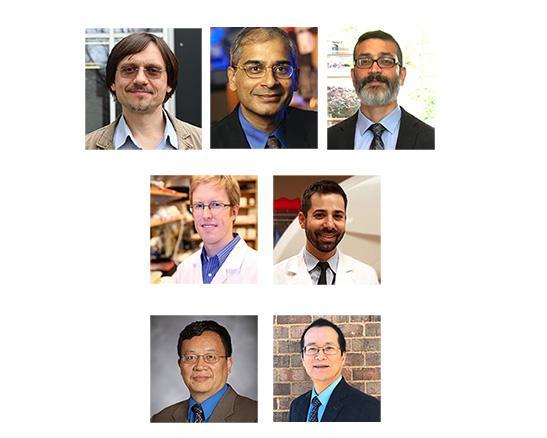REM Seed Grants Support Drug Delivery Innovation
Aug 05, 2021 — Atlanta, GA

The Regenerative Engineering and Medicine (REM) research center has awarded seed grants– totaling $300,000– to three teams of interdisciplinary researchers.
REM, a collaboration between Emory University, the Georgia Institute of Technology, and the University of Georgia, supports drug delivery research with high innovation and potential for translational impact among diverse investigators in tissue regeneration, cell therapy, and immune modulation.
The goal of the 2021 seed grants is to support new, innovative research in therapeutic delivery.
“The seed grant program is crucial to sparking investigative research projects across institutions and disciplines,” says Susan Thomas, Petit Institute researcher, professor in the George W. Woodruff School of Mechanical Engineering, and co-director of the REM center representing Georgia Tech. “We’re excited to see how each team’s project develops over the next few years.”
Here’s an overview of the 2021 recipients:
Project Title: Precise Area INtroduction and Targeted Delivery (PAINT Delivery): A Novel Tool to Facilitate Targeted Intracellular Delivery of Therapeutic Agents
Principal Investigators: Andrei Fedorov (Georgia Tech, Petit Institute researcher), Ravi Kane (Georgia Tech, Petit Institute researcher), Lohitash Karumbaiah (University of Georgia).
Synopsis: The researchers’ focus is surrounding Glioblastoma (GBM) and the presence of resistant glioblastoma stem cells (GCSs) that reside in a highly specialized tumor microenvironment (TME). The team has proposed a technology called Precise Area INtroduction and Targeted Delivery (PAINT Delivery) to address this gap. This technology will allow precise and direct delivery of therapeutic agents (both small molecule drugs and biologics) to GBM with unparalleled rapidity, accuracy, versatility, and ease of use. The goal is to use this approach to further develop and facilitate the targeted delivery of therapeutic agents to relevant cellular populations in other highly invasive and heterogeneous solid tumors.
Project Title: Lymphatic Function as a Therapeutic Target for Enhancing the Abscopal Effect in Melanoma
Principal Investigators: J. Brandon Dixon (Georgia Tech, Petit Institute researcher), Zachary Buchwald (Emory University, School of Medicine)
Synopsis: The overarching goal is to establish the necessity of lymphatic drainage and the potential of lymphatic function as a therapeutic target, to enhance the abscopal effect of combined radiation therapy and immune checkpoint inhibitor drugs. The team will focus on understanding how the lymphatic system contributes to the abscopal effect and if stimulating lymphangiogenesis increases the potency of therapy. This project represents a novel drug delivery approach that enhances delivery of tumor antigens to lymph nodes by stimulating lymphatic transport in response to radiation therapy as a strategy to improve the efficacy of immunotherapy.
Project Title: Extracellular Vesicles Encapsulating Cas9/sgRNA for Treatment of Lung Cancer
Principle Investigators: Houjian Cai (University of Georgia), Shi-Yong Sun (Emory University)
Synopsis: The goal of this study is to develop a technology that will encapsulate the Cas9/sgRNA ribonucleoprotein complex into extracellular vesicles and incorporate a viral envelope protein into the extracellular vesicle membrane to confer transfection specificity to target lung tumor cells. The investigators will deliver the CRISPR machinery to silence c-Myc and re-sensitize osimertinib treatment in non-small cell lung cancer expressing EGFR mutant (EGFRm). The encapsulation process of the CRISPR/Cas9 machinery occurs naturally through extracellular vesicle’s biogenesis. This study will provide a novel approach for gene therapy for the treatment of lung cancer.
Learn more about the REM Research Center.
Carly Ralston




